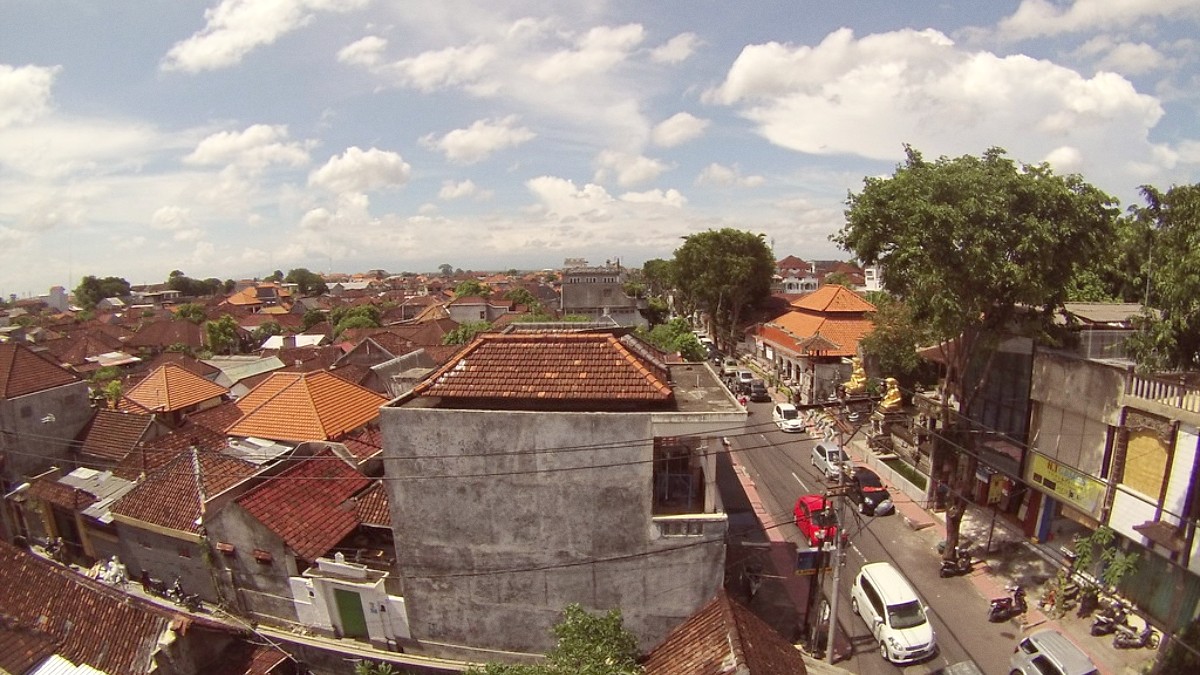
Bali, Indonesia
Denpasar, like the rest of Bali, has a tropical monsoon climate, with two distinct seasons: dry and wet. The weather remains warm and humid year-round.
Dry Season (April to October): This period brings lower humidity, less rainfall, and abundant sunshine. Temperatures typically range from 26°C to 30°C (79°F to 86°F). Clearer skies and calmer seas present ideal conditions for outdoor exploration.
High Season (July, August, December, January): Optimal weather for sunny days. Attractions and services operate fully. Expect increased accommodation and flight prices. Popular sites experience larger crowds. Traffic congestion intensifies.
July, August, Dec, Jan
Optimal weather, full operation of services, many activities.
Higher prices, larger crowds, increased traffic.
April, May, June, Sep, Oct
Pleasant weather, fewer crowds, competitive prices. April and May are notably pleasant.
Early April might see residual wet season showers, increasing chances of rain in late October.
February, March, November
Significantly lower prices for accommodation and flights. Fewer tourists for a more authentic experience. Lush, verdant landscapes.
Higher humidity, frequent rain showers that disrupt outdoor plans. Some smaller businesses may have reduced hours.
Requirements vary based on your nationality and length of stay. Citizens of certain ASEAN countries (e.g., Malaysia, Singapore) enjoy visa exemption for up to 30 days. For many others (US, UK, most EU), a Visa-on-Arrival (VoA) is an option. The VoA is valid for 30 days and can be extended once for an additional 30 days. Its cost is IDR 500,000 (approx. USD 35). An E-VOA application online before arrival can save time. For stays over 60 days or specific purposes, an e-Visa (B211A) is necessary, with application in advance through a sponsor.
Your passport must be valid for at least 6 months from your date of entry into Indonesia. This is a strict requirement. Proof of a confirmed return or onward ticket from Indonesia shows your intent to leave within your permitted stay. Immigration officers may ask for demonstration of sufficient funds to cover expenses. No visa photos are generally needed for VoA or E-VOA applications, as your photo is taken digitally upon arrival.
If you need a VoA, proceed to the dedicated counter to pay the fee. Keep your receipt. E-VOA holders bypass this queue.
Present your passport, onward travel proof, and VoA receipt/E-VOA confirmation. Digital photo and fingerprints are taken.
Complete an electronic customs declaration (e-CD) online before arrival or at airport kiosks. This is mandatory for all.
Indonesia has no specific health entry requirements. Travelers with fever/symptoms may face screening.
No special permits are typically needed for standard tourism activities in Denpasar or popular Bali areas.
Bali offers options for every budget, from very economical to high-end luxury.
The official currency is the Indonesian Rupiah (IDR), symbolized as Rp. Banknotes range from Rp 1,000 to Rp 100,000. Major foreign currencies (USD, EUR, AUD) are easily exchanged at licensed money changers. Always use reputable establishments and avoid unofficial street changers to prevent scams.
Tipping is not traditionally expected in Indonesia, but it becomes more common in tourist areas, especially in higher-end establishments. A small gratuity for good service is always appreciated.
Denpasar has several hospitals with international patient services, like BIMC Hospital Kuta and Siloam Hospitals Denpasar. Pharmacies are widely available. For emergencies, dial 112.
This table details approximate daily costs for different travel styles in USD and IDR.
These figures are approximate and can vary based on personal choices and exchange rates.
A budget traveler might find comfort at local warungs and guesthouses, while luxury travelers enjoy fine dining and private experiences.
A traveler focused on cost-saving. Prefers local eateries and guesthouses. Uses ride-hailing or scooter for transport. Enjoys DIY sightseeing.
Daily Total: $40 - $95
Expect basic amenities, but often more authentic local experiences.
Seeks a comfortable balance between cost and quality. Opts for mid-range hotels, variety in dining, and uses taxis/part-time drivers. Enjoys guided tours.
Daily Total: $110 - $300
May face some premium costs during peak season.
Prioritizes premium comfort and exclusive experiences. Stays at luxury resorts, dines at fine restaurants, and uses full-time private drivers.
Daily Total: $320 - $500+
Highest prices for exclusive services and amenities.
| Category | Budget | Mid-Range |
|---|---|---|
| Accommodation (per night) | Rp 250,000 - Rp 500,000 | Rp 600,000 - Rp 1,500,000 |
| Meals (per dish/meal) | Rp 20,000 - Rp 50,000 | Rp 80,000 - Rp 200,000 |
| Transportation (daily) | Rp 15,000 - Rp 100,000 | Rp 600,000 - Rp 900,000 |
Consult your doctor 4-6 weeks prior for Hepatitis A & B, Typhoid, Tetanus, MMR. Rabies and Japanese Encephalitis may be considerations for longer/rural stays.
Common. Drink only bottled water. Avoid ice unless from purified sources. Eat well-cooked food. Wash hands frequently.
Mosquito-borne. Use Repellent with DEET or Picaridin, wear long clothing at dawn/dusk, and consider mosquito nets.
The sun in Bali is intense. Protect your skin.
Wear Broad-spectrum sunscreen (SPF 30+), a Wide-brimmed hat, and Sunglasses. Stay well hydrated with plenty of water. Limit exposure during peak sun hours (10 AM - 4 PM).
Bali has a rabies risk. Avoid approaching or feeding stray dogs and monkeys. Seek immediate medical attention if an animal bites or scratches you.
Malaria risk is low in Denpasar tourist areas.
Denpasar features hospitals with international patient services (BIMC Kuta, Siloam Hospitals). Numerous private clinics also serve tourists.
"Apotek" are widely available for over-the-counter and some prescription medications.
Tap water is not safe to drink. Only bottled or purified water. Always check bottle seals.
While generally safe for tourists, awareness of local safety concerns is wise.
Keep these numbers handy for any unexpected situations.
Dial 112 for police, fire, or ambulance.
Dial 118 or 119 for ambulance services.
Call +62 361 754599 (Kuta area, a helpful contact for tourists).